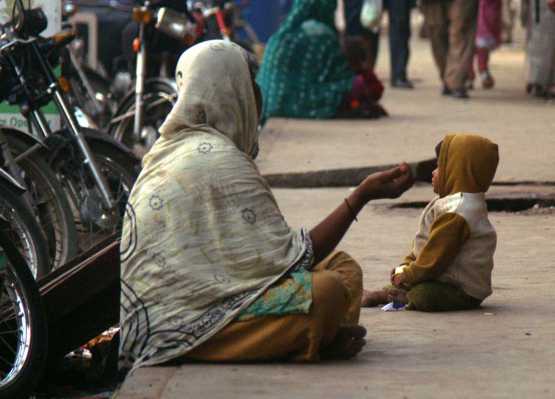How can we overcome beggary in our community? Is beggary illegal in Pakistan?
Beggary is one of the humiliating ways adopted to earn money. Beggary in Pakistan is not that much of a need rather it has become a profession. Traffic signals, shopping areas, and the grounds of hospitals, mosques, and shrines are all popular spots for beggars. The problem is Peoples firmly believe that giving money to the poor will increase the chance of their prayers being heard. They never think about where their money might be going and whether they are actually helping the poor or supporting the corrupt mafia instead.
Our religious practices such as Zakat, Sadqa and Fidiya especially promote this passion for helping the needy in society. Various social welfare organizations in the country and even our Madrasa system are totally dependent on charity and donations. Even though such social and religious practices do not make begging legal, and Islam discourages it, the criminal begging mafia takes advantage of people's spiritual beliefs. These professional beggars are involved in emotional and religious blackmail as they deceive people to portray themselves as helpless and needy, which they truly are not.
Regarding law structure, beggary is illegal in Pakistan. IN 2011, Lahore High Court ruled that the Government should strictly enforce laws to discourage “professional beggary”, set up homes for the destitute, and improve the charity disbursements for the poorest. Similarly, Sindh Government imposed a ban on child beggary and directed the social welfare department to pick up beggar children and rehabilitate them in welfare centers. Helpline 1121 is also provided to inform authorities about beggars and their activities. But all in vain. In spite of these laws, due to the lack of adequate attention and funds by the government, neither any permanent step could be taken nor did these laws prove effective. Even if the police take action, these beggars are either silenced through bribes or released on bail after a month. Mostly, the police implement a take-away-from-the-scene strategy which is not a lasting solution to the problem.
The curse of beggary cannot be ended by using typical methods such as; arrests, and temporary bans all of these like have proven futile.
Firstly, its the duty of the government to take this kind of action, the government and NGOs must collaborate with each other in conducting surveys. Once this data comes to the fore, only then can work be done for the rehabilitation and employment of beggars and the real culprits be traced. To this end, the media must also play its due role in raising public awareness so that beggars are discouraged as much as possible and this criminal chain is broken. Moreover, the government should impose a complete ban as well as fines on giving money to beggars rather than offering them food, cloth, and work. Furthermore, the existing system of Zakat must be reactivated in our society.
Beggary is a curse that should be eliminated at any cost. For this, strict laws and proper planning are required. Being poor is not a crime but fulfilling one’s needs through illegal means instead of hard work is a crime. If this single curse is eliminated, then many other problems emanating from this will also come to an end, which is much essential for the development and progress of our society.
It's a very long and huge discussion but I would like to close this topic by quoting this Chinese proverb;
That is; "if you really want to help the needy, teach him how to catch fish rather than give him fish".
If you want to become part of the discussion! give suggestions in the comment section related to this topic...
Thanks

